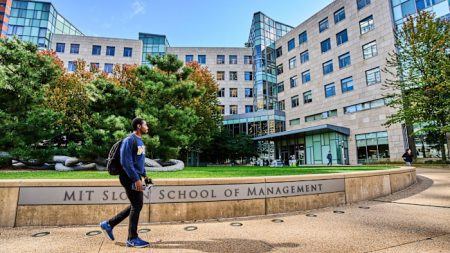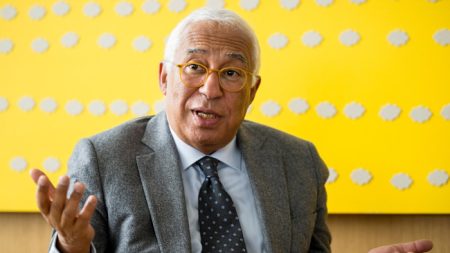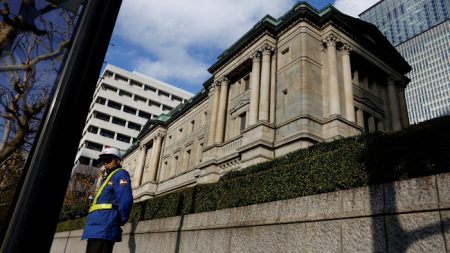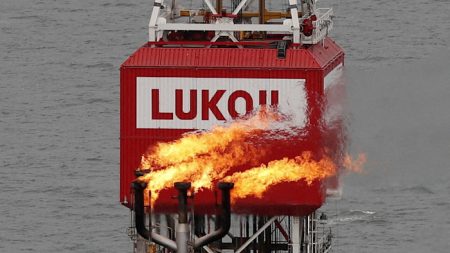Unlock the Editor’s Digest for free
Roula Khalaf, Editor of the FT, selects her favourite stories in this weekly newsletter.
Ivan Boesky, a Wall Street arbitrageur whose trading on insider information connected to the megadeals of the 1980s made him a symbol of Wall Street greed and malfeasance, has died at 87.
Boesky rose to fame as a mergers expert with a seemingly superhuman ability to foresee corporate combinations. Wall Street’s dealmaking was suddenly on overdrive and minting fortunes, including one for Boesky that he happily flouted. His 1986 commencement speech to University of California, Berkeley business school graduates in which he extolled the virtues of greed, helped inspire the Gordon Gekko catchphrase in Oliver Stone’s later movie Wall Street that “greed is good”.
By the mid-1980s, the whisper that “Boesky is buying” could move markets and provide the lubrication that corporate raiders and others needed to pull off a deal. Never a raider or a banker himself, Boesky became a sought after ally of financiers like Michael Milken who were eager to keep the deals flowing, even as the mergers became more misguided and the bonds sold to finance them became junkier.
In November 1986, Boesky pleaded guilty to conspiracy, unravelling not only his own myth building, but also the careers of Milken, against whom Boesky provided evidence, and others. Milken’s investment bank, Drexel Burnham Lambert, collapsed soon after.
In the wake of the Boesky trading scandal, Congress and the Securities and Exchange Commission passed new rules that defined insider trading for the first time, leading to an era of increased enforcement and providing a road map for future investigations into Wall Street malfeasance.
The child of a middle-class Jewish family that ran restaurants in Detroit, Boesky came to Wall Street in the mid-1960s. He launched his own firm with $700,000 from his wife’s family, long before hedge funds and independent trading firms were common on Wall Street.
Boesky was an early devotee of a then obscure Wall Street strategy called merger arbitrage, a low-risk, low-return trading technique used to exploit small differences in the stock prices of two companies involved in a merger.
He reasoned that those small differences could be significantly bigger and the profits he could make even larger by placing bets on mergers that had yet to be announced. There were some early failures, but by 1984 Boesky had a number of winning bets, none bigger than the his wager on Chevron’s $13bn takeover of Gulf Oil. It was the largest US merger on record at the time and netted Boesky and his investors $65mn. Other deals also brought in tens of millions for him and his firm.
Boesky quickly became one of the most sought after people on Wall Street, by wealthy individuals and institutions wanting him to invest their money, and by other traders, bankers and journalists on the hunt for the next deal. He raised funds on both sides of the Atlantic, eventually managing as much as $3bn.
Boesky ate little and slept less, earning a reputation for being on the phone at all hours of the day. His Manhattan trading firm was outfitted with dozens of television screens and more than 160 telephone lines, all of which seemingly served to explain his ability to, legally, predict deals before others. Despite having been a middling student, he taught college courses on mergers and his arbitrage techniques.
“In elevating merger arbitrage to the status of an academic subject, Boesky is clearly attempting to graft respectability on to what to many eyes is still a decidedly grubby occupation,” the Financial Times wrote in March 1986. Remarking on all the effort he seemed to put into uncovering the next deal, the paper added: “It might just be better to rely on a good old-fashioned tip.”
Behind the scenes, Boesky’s success was driven by suitcases of cash, $100,000 or more at a time, delivered to Wall Street bankers in exchange for insider tips on upcoming deals.
After federal prosecutors including then-US attorney Rudy Giuliani caught up with him, Boesky paid $100mn and served 20 months in jail. He never returned to Wall Street.
His death on Monday was announced by his daughter Marianne, one of four of Boesky’s children, on the Instagram account of her New York City art gallery. “A beautiful soul who inspired me to work hard, care harder and always remain curious,” she wrote in the post.
Read the full article here














